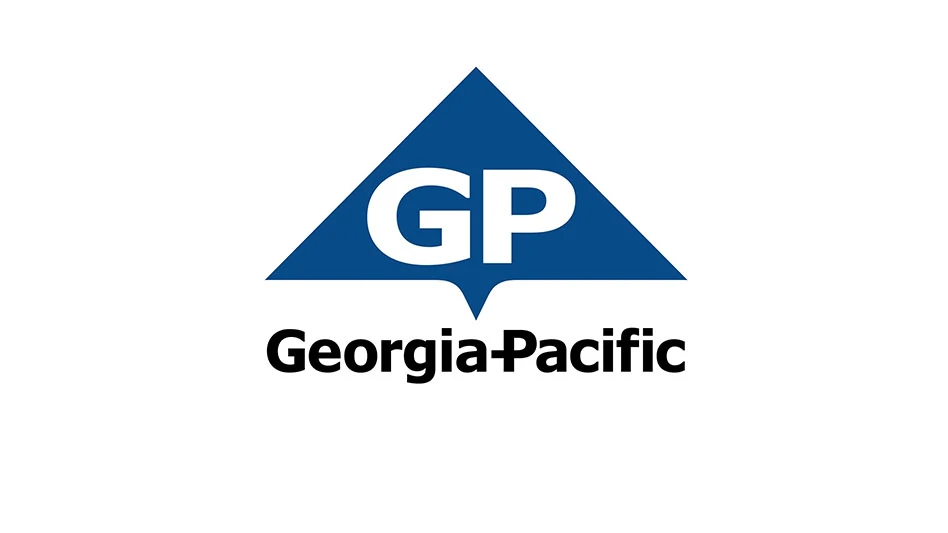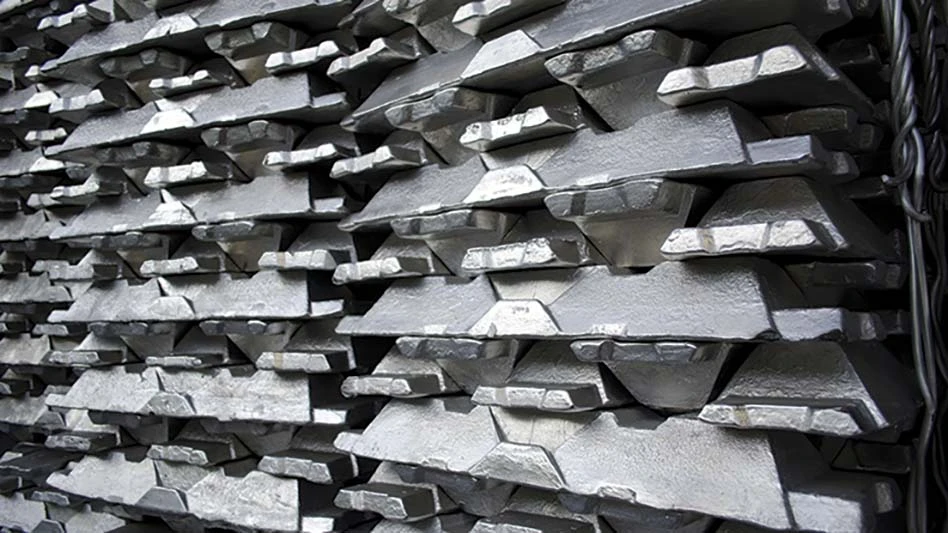The Basel Convention defines scrap as waste, and this could have a negative impact on the international trading of scrap metal.
If you think trade in scrap metal is too well established or too important to be banned by environmentalists as a matter of international law, think again. The Basel Convention on the Control of Transboundary Movements of Hazardous Wastes and their Disposal, which has been ratified by more than 70 nations, including all but one of the major industrialized nations, has taken the position that trade in scrap metal can be regulated on environmental grounds, and even banned, as if it were hazardous waste. Such a ban has already been enacted, and the Basel Convention is already impacting trade in scrap metal.
The Convention is still in development, and its sometimes vague rules are being interpreted and refined, so the relationship with scrap metal may change. Some parties to the Convention have recently begun to realize that they may have bitten off more than they intended. And while they have not yet begun to choke upon it, these parties are rethinking the situation of scrap metal. This summer, some parties to the Convention are considering whether or not such commercial commodities as scrap iron, steel and copper should be left within the ban. Even Greenpeace concedes that trade in "clean scrap" is not the same as dumping. A workshop in Senegal in March began the process of reconsideration, and a select group of countries met in late May in Copenhagen to see if there might be a practical balance between the ban and trade in clean scrap. The impact of the ban upon trade in scrap metal to developing countries promises to be the major issue when the Basel Convention convenes its Third Conference of the Parties in Madrid in September.
DEFINITION OF WASTE
The immediate problem is with the definition of waste. The purpose of the Convention is to stop international dumping of hazardous waste, especially in developing countries which have no capability to manage it. But the Convention defines hazardous waste very broadly, and then applies the same rules to scrap metal destined for use by industry, as it does to hazardous waste.
Seeking to close all loopholes, the Convention defines waste as not only material that is dumped, but also material intended for "operations that may lead to resource recovery, recycling, reclamation, direct re-use or alternative uses." Scrap metal, intended for re-use or recycling, is considered a waste.
Then, having defined scrap metal as a waste, the Convention brings scrap metal into its definition of hazardous waste by including wastes containing such constituents as copper compounds, zinc, arsenic, cadmium, or lead. A great deal of commercially traded scrap metal has some measurable level of these constituents. Like the Superfund law, the Basel Convention sets no lower thresholds or de minimis concentrations for hazardous constituents in its definition of hazardous waste. And even in the absence of these listed hazardous ingredients, scrap metal may still be considered hazardous waste because some metals are themselves poisonous at some concentration, such as copper, or are capable of producing a hazardous leachate.
A literal reading of the Convention supports the position that scrap metal is a waste and hazardous waste. A literal reading also supports the position that the Basel Convention’s definition of waste supersedes a national definition, which may allow commercially trade scrap metal as a product, unless that national definition is even more strict and encompassing. And the parties to the Convention have clearly taken the position that whether or not scrap metal is a product or a waste is a matter that can, and will, be decided within the Basel Convention. Thus, whether industries dealing with scrap metal like it or not, the Basel Convention should be understood now as dealing with scrap metal as waste, and hazardous waste, subject to all of the burdens applicable to waste disposal.
CONVENTION REQUIREMENTS
The core of the Convention is the requirement of "prior informed consent" as a precondition to trade. Basel prohibits transboundary shipment of hazardous waste unless the environmental authorities of the countries of import, export and transit have been given advance notice of a proposed shipment, in significant detail. Each country must then confirm that the transaction provides for environmentally sound management, and issue a written consent to the shipment. Until that written consent has been given, the proposed shipment can not begin. And the Convention directs ratifying countries to treat a shipment of "hazardous waste" which does not have such written consents as a criminal act.
This prior informed consent process is complex and expensive, is not compatible with common trading practices, and in practical effect should result in a minimum of applications. There are, however, no objective standards for consent or denial; the Basel rules permit a negative decision based upon any reason, or upon no reason. A country can decide to not even respond to a notice of a proposed shipment. There are no time limits for a response. And in response to those few remaining applications, denial is the response favored by environmentalists, and is the easiest course of action.
In many trading circumstances, even the possibility of approval of a transaction in scrap metal has been eliminated by the Convention, because there is a ban upon any trade in materials classified as hazardous waste, without any consideration for the environmental management involved. As part of the original Convention, trade between countries which have ratified it, and those which have not, is prohibited: "A Party shall not permit hazardous wastes or other wastes to be exported to a non-Party or to be imported from a non-Party." (Article 4, paragraph 5).
The United States is the only major industrialized nation that has not ratified the Basel Convention, and thus one of the world’s largest markets for scrap metal is affected by this ban. Citizens from many of the world’s countries, those which have ratified the Basel Convention, are prohibited by the Convention from purchasing scrap metal defined as "hazardous waste" in the U. S. Among the 24 developed countries which are members of the Organization for Economic Cooperation and Development, including the U. S., trade in scrap metal continues under a separate international accord. But outside of the OECD there are no such accords which modify the ban and permit trade between ratifying countries and non-ratifying countries.
And in March, 1994, the parties to the Convention unanimously approved a further ban, blocking all trade in "hazardous waste" originating from any country which is a member of the OECD to a country which is not a member. No consideration of the environmental management of the material or its processing is permitted. The geo-political alignment of the countries in which the purchasing and selling companies are located, i.e. membership in the OECD, is the only, and the definitive, consideration. This ban, which is to become effective by the end of 1997 for recyclable materials, effectively cuts off most of the world’s largest markets in scrap metals from purchases by citizens of emerging economies and developing countries.
WAKING UP TO BASEL
Since that decision, some people have woken up. Steel industries in developing countries which rely upon scrap to charge electric arc furnaces have realized they will face serious problems obtaining scrap if they are prohibited from buying in major world markets. Purchasers of scrap copper have recognized similar supply problems. And the economic and commercial ministries of a number of developing countries, which had previously either not heard of or ignored the Convention, have realized that there is something at stake beyond dumping of hazardous waste.
These ministries approached a leader of the movement for the ban, Bakary Kante of Senegal, and asked for reconsideration. Kante responded with a workshop in Dakar in March of this year, at which (for the first time) parties to the Basel Convention listened to the other side of the story. Representatives of both industry and government from developing countries asserted that the Convention’s ban against purchases of scrap metals in OECD markets would cause harm to their economies. These assertions were strongly supported by UN trade statistics, showing very large purchases of scrap metals in OECD markets by industries in developing countries.
The recognition that the trade ban was not an unalloyed good led to the meeting in late May in Copenhagen, to seek a way to define and exempt "clean scrap". A solution is to be recommended to the Technical Working Group of the Basel Convention, and then passed on to Third Conference of the Parties. At presstime, the outcome had not yet been determined.
But as a practical matter, what is going to be done? What can be done? The ban against purchases in OECD markets of "hazardous waste" intended for recycling was a unanimous decision at the Second Conference of the Parties. Several European countries are still seeking to solidify the ban, to incorporate it into the law of the European Union. These same European countries further seek to make the trade ban a full amendment to the Basel Convention, with greater legal enforceability, at the Third Conference of the Parties in Madrid. As unpopular and illogical as the ban may seem to some, it is politically strong with others.
It may be that the outcome of Dakar, Copenhagen and Madrid will be a redefinition of waste which excludes some commercial grades of scrap metals. The U. S. government, although not a party, still carries influence and is opposed to the trade ban and in favor of a redefinition. But a more likely outcome from Dakar, Copenhagen and Madrid will be a recommendation that "less strict" measures be applied to scrap metal. And "less strict" can mean a multitude of difficulties. If the Basel Convention continues to define scrap metal as a hazardous waste, and it most certainly will, trade in scrap metal will be adversely affected.
A "minimal" testing requirement to demonstrate in advance that a shipment of scrap is "clean" can be a significant economic barrier to trade. A requirement of advance notice of a proposed shipment can take that shipment out of timely delivery and market pricing mechanisms. And the Basel Convention is in the process of creating a liability protocol which is worse than the Superfund law, imposing encompassing liability in the country where the "hazardous waste" was delivered, with no right of contribution from any other parties which might be liable at the site.
The precise impact upon individuals and companies involved in trade in scrap metal is difficult to predict. Some of the impact will involve a shifting of trade flows and trading partners, from international to domestic trade, and an adjustment in supply and demand. Elimination of some buyers from markets within the OECD will affect prices both within the OECD and in other markets. As in any trade, some people will make money and some will lose it. There will be an economic dislocation for industries in developing countries, and these industries will suffer the largest losses. But the needs of industries in developing countries have not received sympathy, or even interest, from many of the delegates to the Basel Convention, even from delegates from some of these countries themselves.
And will the dislocation of trade in scrap metal provide a benefit for the environment? Will steel mills in developing countries be more environmentally sound if they obtain scrap from the former Soviet Union rather than from OECD member countries? Or if they go out of business? Does anyone care? Greenpeace, and some delegates to the Basel Convention, have asserted that by industrial production based upon scrap, and engaging in international trade in recyclable materials, rich industrial countries are dumping waste and obsolete wasteful industries upon impoverished peoples.
Industries based upon scrap metal are often environmentally sounder than industries based upon ore, using significantly less material resources and power and generating much less solid and hazardous waste. It must be acknowledged that the processing of metal, whether scrap or from virgin sources, is not environmentally sound in every country, and in many cases (where environmental awareness and responsibility are in early stages), facilities that use scrap metal in these countries may not exercise the same level of sound environmental management as is exercised elsewhere.
But this is not the case in all developing countries and all facilities. And if there are environmental risks associated with metal, these are manageable risks in all countries, and no less so with scrap metal. The prohibition of an industry based upon scrap metal, because of a fundamental lack of understanding of what it is and how it works, only prevents the development of economic resources in developing countries through which the environment can be better protected.
GAINING AWARENESS
It is perhaps unlikely that developing countries, even when represented by their environmental ministries, will permit their metal industries to be sacrificed. It is perhaps unlikely that international trade in scrap metal will be completely overturned, with isolated markets for purchasers from OECD and non-OECD countries. But these are the issues that are the meat of the Basel Convention, and they are all too often considered by delegates with little knowledge and less interest in industry in general and scrap metal in particular.
Whatever the outcome of future discussions concerning the Basel Convention, industries that generate, sell and use scrap metal need to get involved and protect their interests in the Third Conference of the Parties, and beyond.
The author is environmental counsel for Handy & Harman, Waterbury, Conn.

Explore the June 1995 Issue
Check out more from this issue and find your next story to read.
Latest from Recycling Today
- Cyclic Materials to build rare earth recycling facility in Mesa, Arizona
- Ecobat’s Seculene product earns recognition for flame-retardant properties
- IWS' newest MRF is part of its broader strategy to modernize waste management infrastructure
- PCA reports profitable Q1
- British Steel mill subject of UK government intervention
- NRC seeks speakers for October event
- LME identifies Hong Kong warehouses
- Greenville, Mississippi, launches aluminum can recycling program





